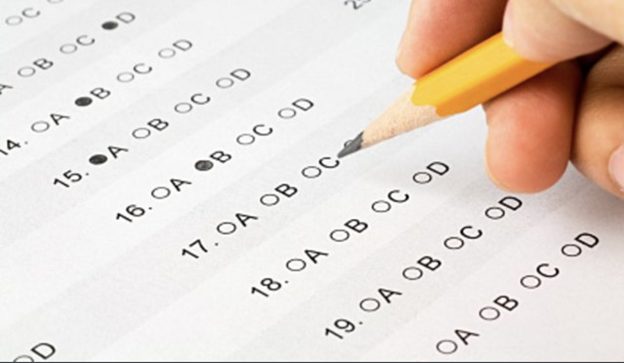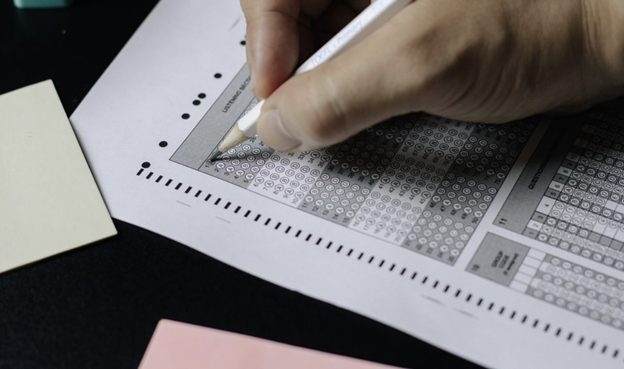
If you are a student looking into joining a university overseas, I am sure that you have heard of the Graduate Record Examination (GRE). This is a multiple-choice computer-based exam format.
The GRE is a standardised test meant to assess general intellectual preparedness for graduate school and is conducted by the Educational Testing Service, known as ETS.
Many graduate programmes, notably Master’s, Doctorate, and specialised degree programmes in a variety of areas spanning from language and literature to technical domains, accept GRE results.
In this article, we will be sharing with you tips to score your GRE!
The GRE Test Structure

Other than planning the big move overseas, such as looking at accommodation and mentally prepping yourself for the big change, it is definitely important to focus on your GRE.
Many universities in the United States, Canada, United Kingdom as well as Singapore accept GRE scores as part of the admission criteria. A good GRE score can get you admitted to one of the best universities. Therefore, it is important to know more about the structure of the exam!
The duration of the GRE will take about 3 hours and 45 minutes. GRE basically test on 3 things:
1) Analytical Reasoning
There will be one section where you will have to show your critical and analytical thinking skills. You will have to analyze a “task” and an “argument” and be able to support your reasons and claims with evidence.
2) Verbal Reasoning
This is a test of your verbal reasoning skills. It intends to measure your ability to draw conclusions and reasons from data and to be able to understand the text as well as concepts. There are 2 sections and 20 questions are in each section. Needless to say, you have to be strong in English in order to score in GRE!
3) Quantitative Reasoning
If you are someone who is good at Math, you will not be worried about this section. There are 2 sections with 20 questions each. This section will test your ability to solve problems using Math. There will be concepts such as algebra, geometry, arithmetic, and data analysis. The questions will be posed in real-life settings like word problems.
Choosing the Best GRE Resources

The latest GRE book does not have to cost hundreds of dollars. If you have access to the internet, you may discover numerous sites with valuable GRE materials as well as several forums where participants can share their experiences and exchange ideas.
A good GRE resource can allow you to perform well enough on test days and get a high score. GRE previous exams are updated based on the most recent educational studies. ETS’s website will be updated with all of the modifications it makes.
As a result, before considering purchasing a GRE resource, it is always a good idea to check the ETS’s official website for the most up-to-date information. This will assist you in selecting the appropriate resource to assist you.
Practice in Proper Sequence

The Analytical Writing Assessment will be given to each applicant first, followed by the remaining parts – Math, Verbal, and Experimental – in a random distribution.
While they may not appear to be big alterations, the section order can have a significant impact on your ultimate score.
Make sure to take a lot of practice tests before that to get into the habit of this revision, so it doesn’t surprise you in the main exams. Know your weaknesses so that you will be able to come up with a structured study plan that works for you!
Follow Your Study Plan

While everyone’s learning styles may be different, it is good to come up with a study plan and follow it! If you are able to start as early as 6 months before the exam, that would be great. Do not underestimate the GRE.
Start by making sure you are reading a lot of analytical non-fiction material since you will be tested on your analytical skills.
Reading will take up a lot of your time so it goes back to my point on starting early! Make sure to include study breaks in your schedule as you want to avoid burnout. A realistic study plan should be sustainable in the long run.
An extra tip you can use to absorb as much information is by using flashcards!
Flashcards are useful as a study tool that students may use whenever they have a spare minute throughout the day. Students can create mnemonics or clues to help them remember the meaning of a term.
Complete a Few Practice Exams

Keep practicing, and this is especially true when it comes to the GRE. To assess yourself and know where you’re going, completing one or more practice examinations can help you figure out which subjects are the most difficult for you.
This will allow you to dedicate more time to working on your problem spots until they become simpler. Test yourself by completing the exam in the exact duration of GRE to ensure that you can be accurate on your own progress.
It is also a great way to test your mental endurance when you are able to get a feel of the GRE’s mental demands.
Make sure to practice in an environment that is as close as possible to the actual examination.
Conclusion
Consistency is another essential component of your GRE preparation. You will only achieve your goal if you stay focus, analyse your weaknesses and make appropriate improvements.
We hope that you find these GRE preparation tips and strategies useful. Best wishes!
